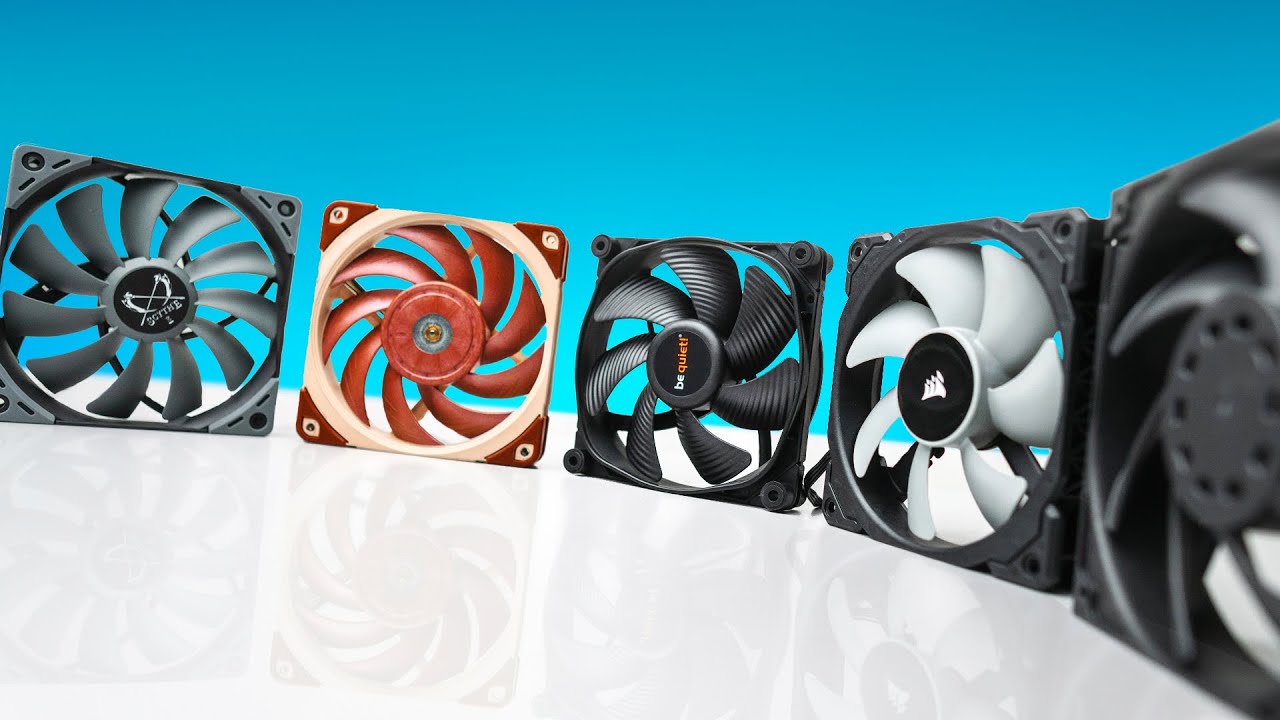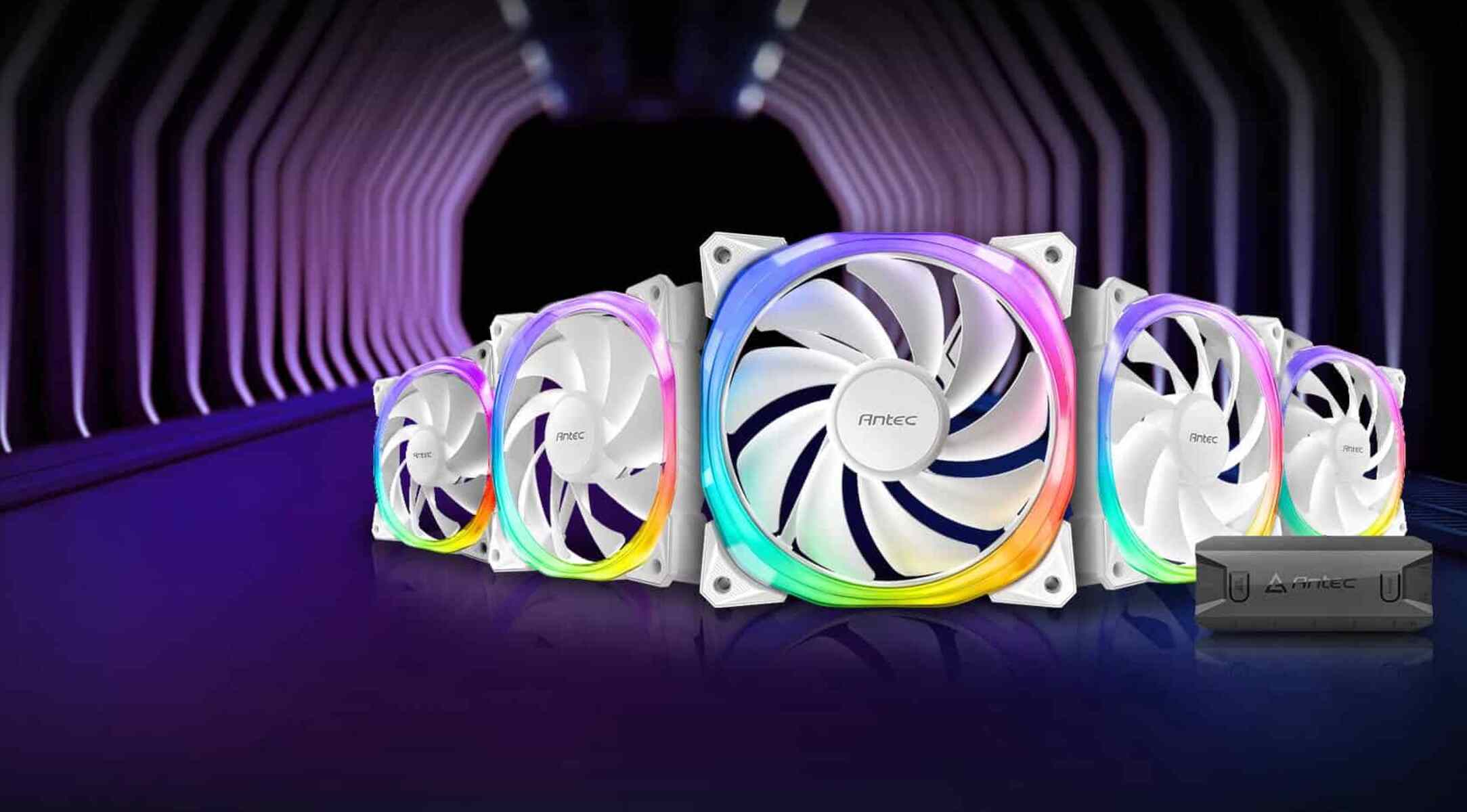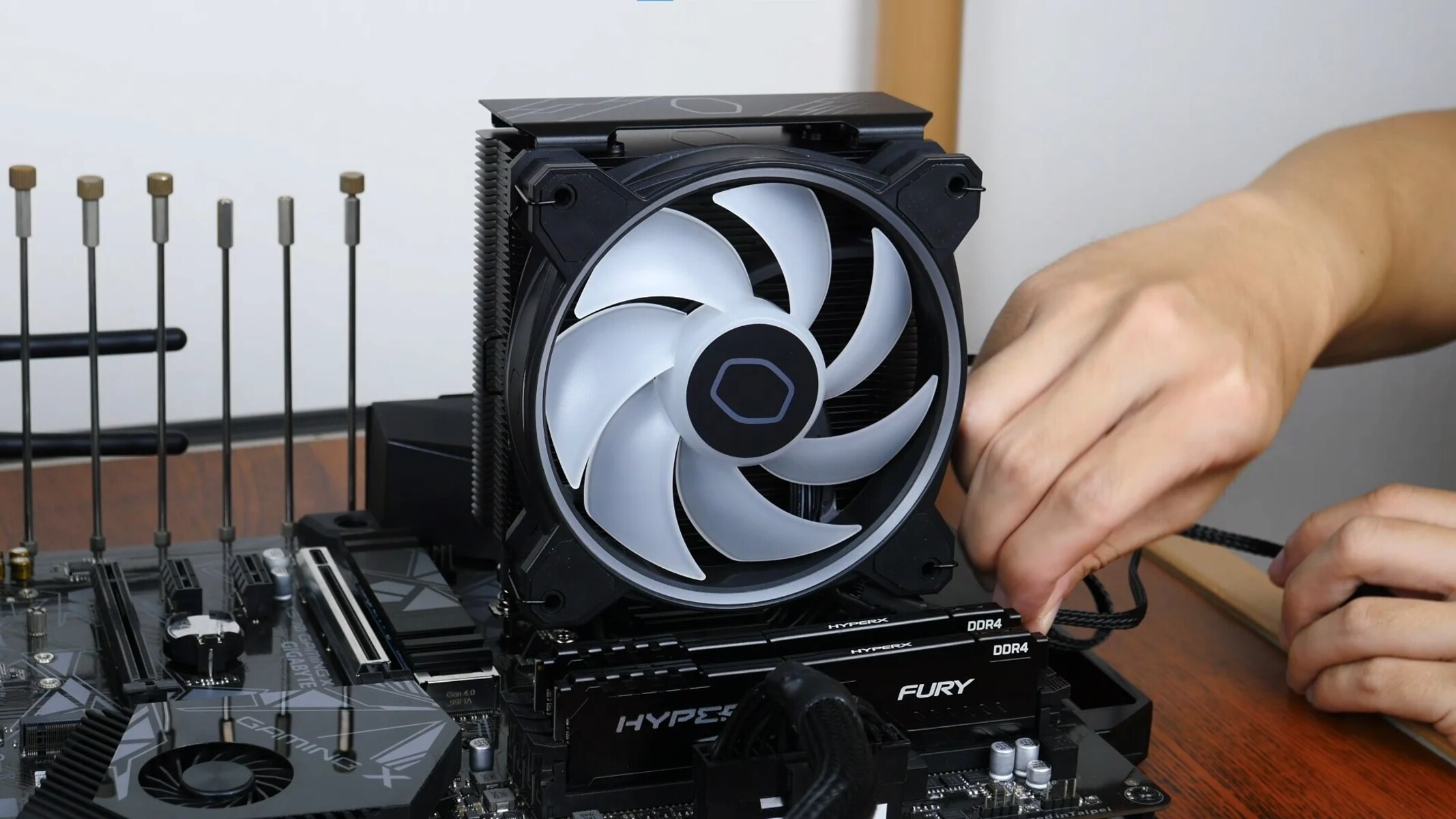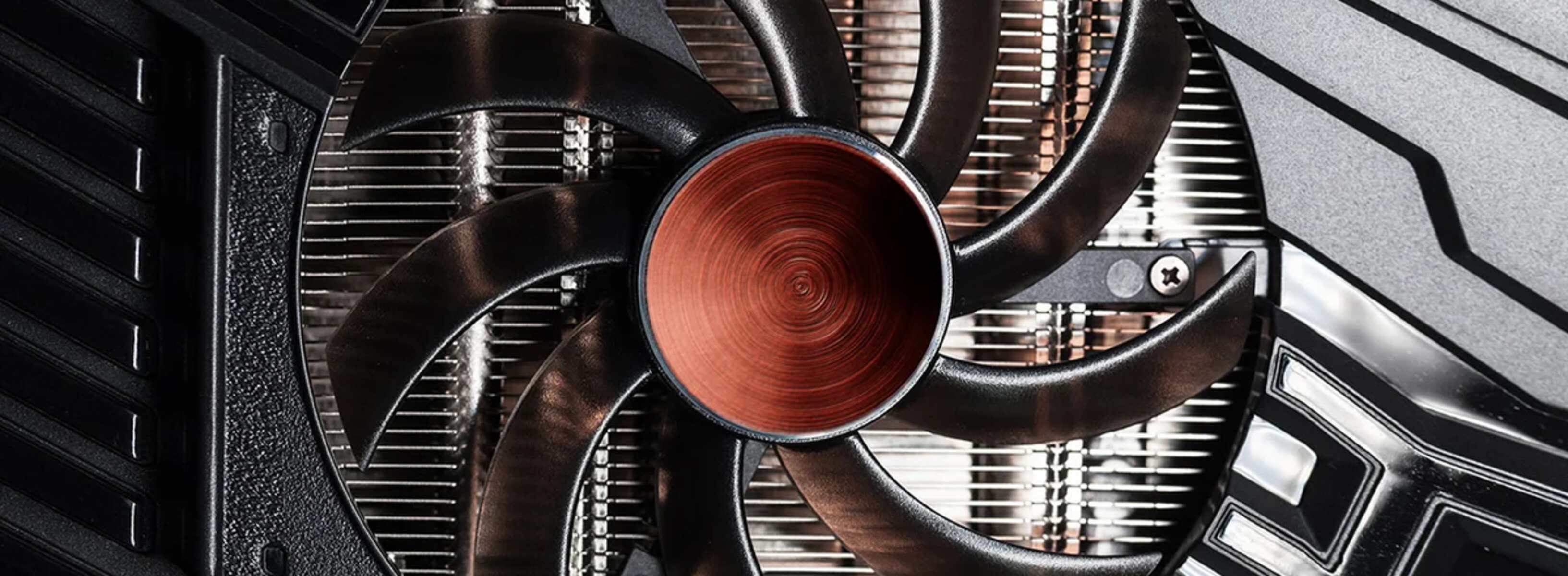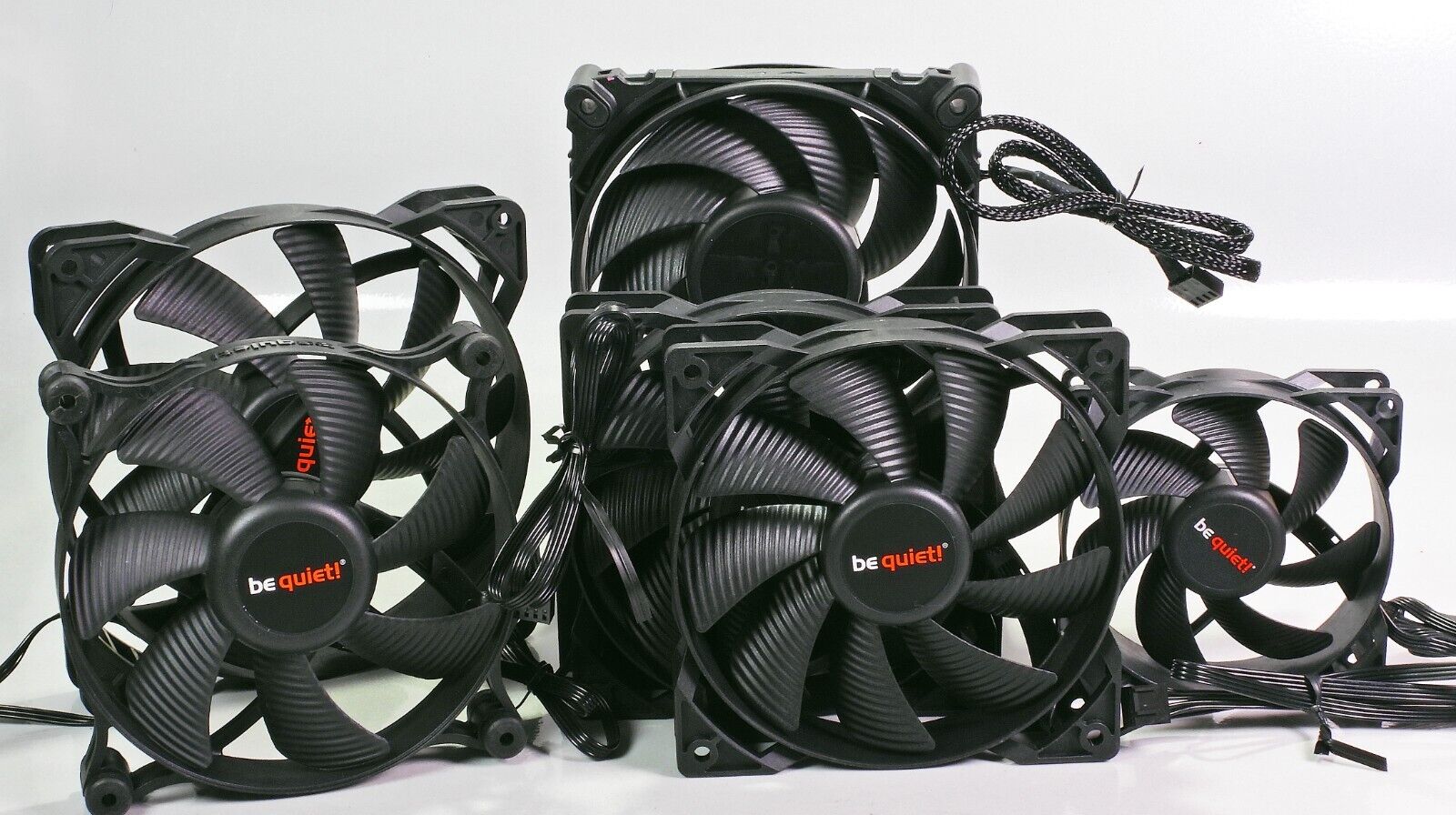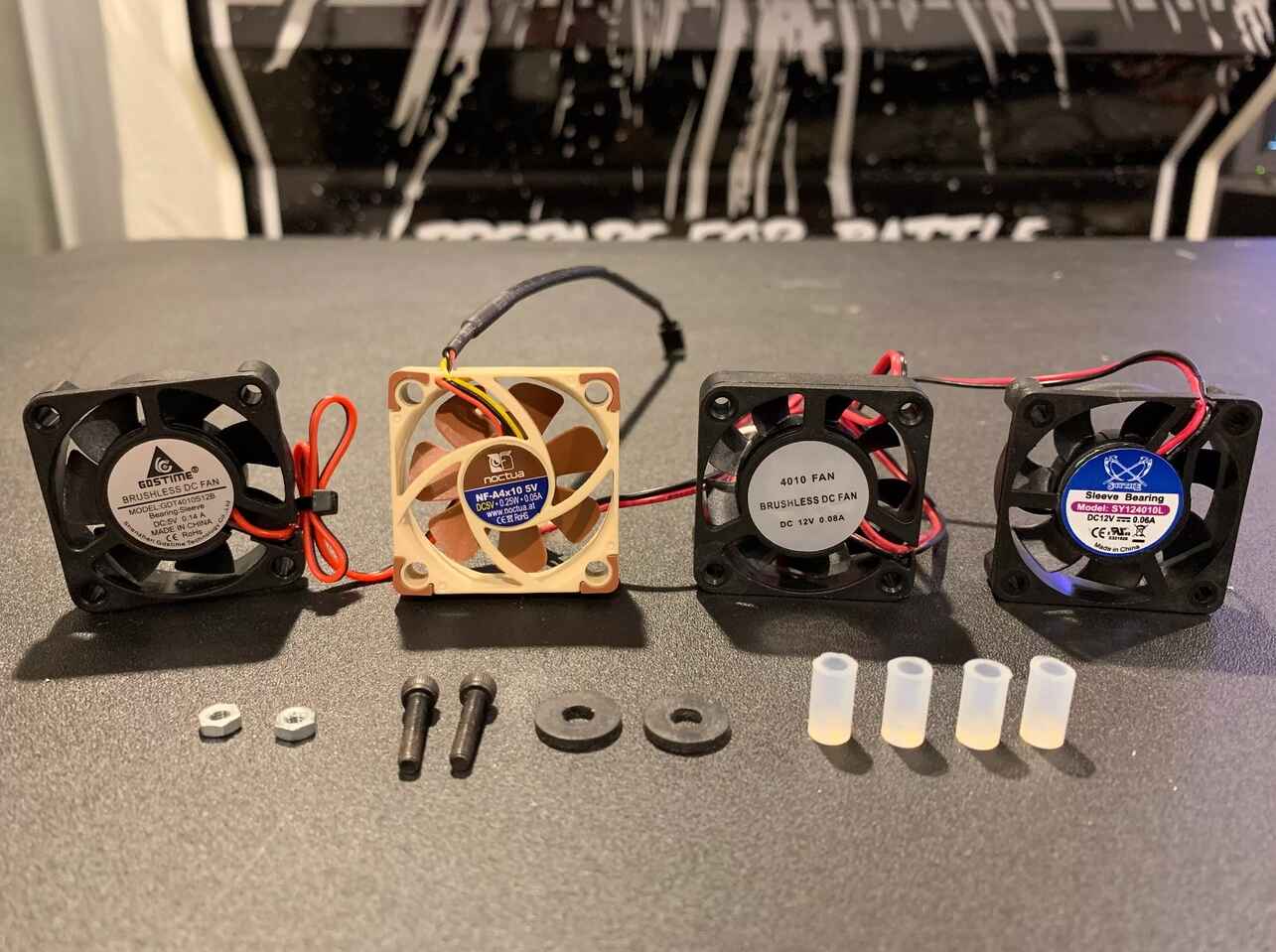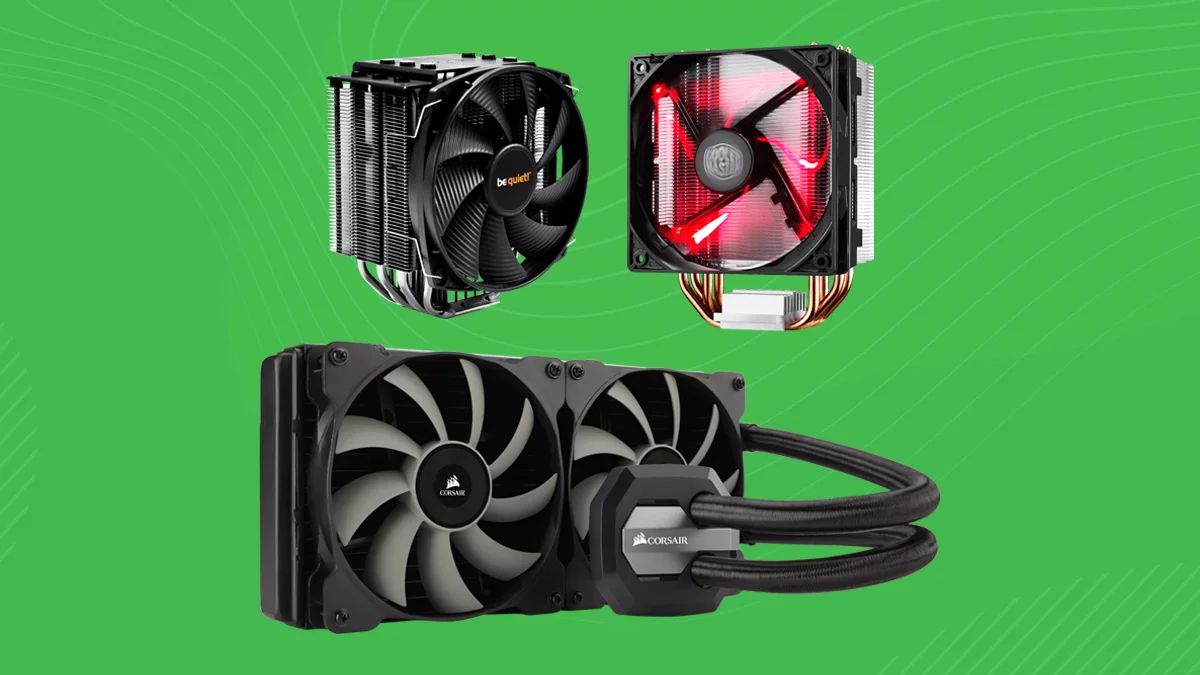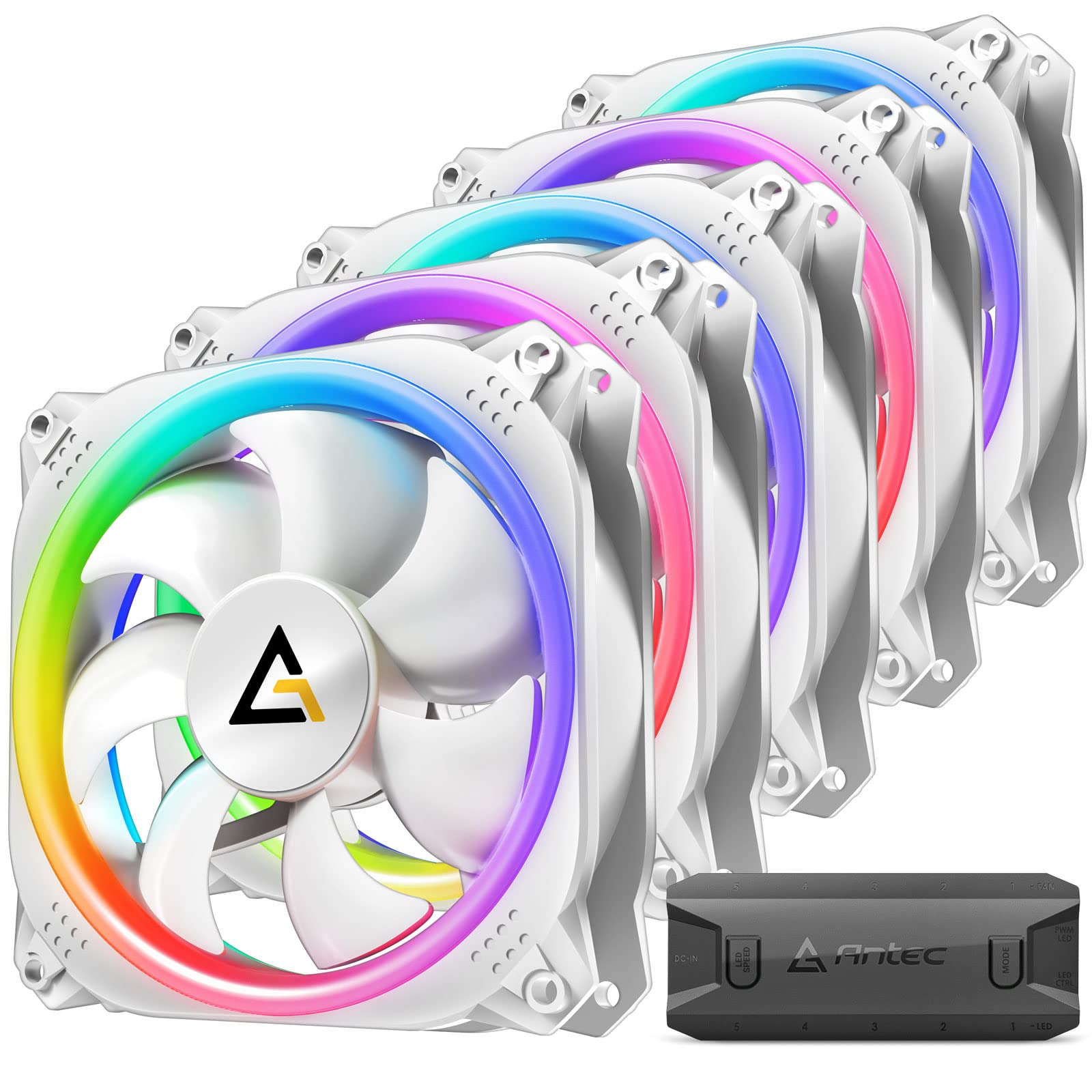Introduction
When it comes to building a quiet and efficient PC, one component that often gets overlooked is the case fan. A case fan plays a crucial role in maintaining optimal airflow, keeping your system cool, and preventing overheating. However, not all case fans are created equal, and some can be quite noisy, disrupting the tranquility of your work or gaming space.
Whether you’re a seasoned PC enthusiast or a beginner, finding the quietest case fan for your setup is essential. With so many options available in the market, it can be overwhelming to choose the right one. That’s why we’ve put together this guide to help you understand the factors to consider when selecting a quiet case fan and highlight some of the best options currently available.
When looking for a quiet case fan, there are a few key factors that you need to keep in mind. These factors will not only determine the fan’s noise level but also its performance and compatibility with your system:
- Fan Size and Compatibility
- Airflow and Static Pressure
- Noise Level and RPM
- Bearing Type
- Fan Blade Design
Considering these factors will ensure that you choose a case fan that operates quietly while effectively cooling your PC.
In this guide, we will explore each of these factors in detail to give you a comprehensive understanding of what to look for when selecting a quiet case fan for your PC. We will also highlight some of the best quiet case fans currently available in the market, ensuring you have a range of options to choose from.
Factors to Consider for Quiet Case Fans
When it comes to choosing a quiet case fan, there are several important factors to consider. These factors will not only impact the noise level of the fan but also its performance and compatibility with your system. Here are the key factors to keep in mind:
- Fan Size and Compatibility: The first aspect to consider is the size of the case fan. Common sizes include 120mm and 140mm, but it’s crucial to ensure compatibility with your case. Larger fans tend to move more air at lower RPMs, reducing noise levels.
- Airflow and Static Pressure: The airflow and static pressure are essential for efficient cooling. Airflow refers to the amount of air a fan can move, while static pressure measures a fan’s ability to pressurize and push air through obstructions, such as dense fin stacks or dust filters. Fans with higher airflow and static pressure can maintain lower RPMs and reduce noise.
- Noise Level and RPM: The noise level of a case fan is measured in decibels (dB). Lower dB ratings indicate quieter operation. Additionally, the revolutions per minute (RPM) determine how fast the fan spins. Lower RPM fans generally produce less noise.
- Bearing Type: The bearing type affects both noise level and fan lifespan. Common bearing types include sleeve, rifle, ball, and fluid dynamic. Fans with higher-quality bearings tend to produce less noise and have longer lifespans.
- Fan Blade Design: The design of the fan blades affects both performance and noise. Fans with optimized blade designs can move more air while generating less noise. Look for features like aerodynamic blades, angled edges, and noise-reducing technologies.
Considering these factors will help you identify a quiet case fan that suits your needs and preferences. It is crucial to strike a balance between noise level, airflow, and performance to create a quiet yet efficient cooling solution for your PC.
Now that we have covered the key factors to consider, let’s explore some of the best quiet case fans available in the market. These fans have been selected based on their exceptional noise-reducing features, airflow performance, and overall reliability.
Fan Size and Compatibility
When choosing a quiet case fan, one of the first considerations is the fan size and compatibility with your PC case. The two most common sizes are 120mm and 140mm, although other sizes may be available depending on your case model.
The fan size determines the amount of air the fan can move and its overall performance. Larger fans generally have larger blades, allowing them to move more air with each rotation. This results in lower RPMs, reducing noise levels while still maintaining adequate airflow.
Before purchasing a case fan, it’s important to check the compatibility with your PC case. Most cases have specific mounting points and screw hole configurations for different fan sizes. Refer to your case’s specifications or manual to ensure that the fan you choose fits properly.
While larger fans tend to offer better airflow and lower noise levels, they may not always be feasible due to space limitations in smaller cases or specific mounting requirements. In such cases, smaller fans, such as 80mm or 92mm, can be utilized. However, it’s important to note that smaller fans may need to spin at higher RPMs to achieve similar airflow levels, resulting in increased noise.
When considering fan size and compatibility, it’s also essential to consider the available fan slots in your case. Some cases may have multiple fan mounts, allowing for a combination of different fan sizes. Assessing your case’s cooling needs and available slots will help you determine the ideal placement and configuration of case fans for optimal airflow and noise reduction.
Ultimately, choosing the right fan size and ensuring compatibility with your case will contribute to a quiet and efficient cooling solution for your PC. Take the time to measure the available space, consider your case’s limitations, and select a fan size that strikes a balance between performance and noise reduction for your specific setup.
Airflow and Static Pressure
Two crucial factors to consider when choosing a quiet case fan are airflow and static pressure. Both of these factors are directly related to the fan’s ability to efficiently cool your PC components while maintaining low noise levels.
Airflow: Airflow refers to the volume of air that a fan can move in a given amount of time, usually measured in cubic feet per minute (CFM) or liters per second (L/s). Higher airflow means more air is being circulated, which can help dissipate heat from your PC components more effectively. Fans with higher CFM ratings can maintain lower rotational speeds, resulting in quieter operation.
Static Pressure: Static pressure is the amount of pressure that a fan can generate to push air through obstructions, such as dense fin stacks, radiator fins, or dust filters. It is measured in millimeters of water (mmH2O). Fans with higher static pressure are more adept at overcoming resistance and maintaining airflow through restricted areas. This is particularly important if you have components like radiator setups or tight airflow paths.
When it comes to choosing a quiet case fan, striking a balance between airflow and static pressure is essential. While high airflow can enhance cooling performance, fans with extremely high CFM ratings often produce more noise. On the other hand, fans with higher static pressure may have slightly reduced airflow, but they can effectively push air through restrictive elements without increasing noise levels.
It’s important to consider the specific cooling requirements of your system when deciding on the airflow and static pressure. For example, if you have a small form factor PC or components with dense fin stacks, fans with higher static pressure would be more suitable. On the other hand, if you have ample space and airflow paths in your system, fans with higher airflow and lower static pressure may be preferable.
Additionally, many manufacturers provide specifications and charts that illustrate the fan’s airflow and static pressure performance at different RPM levels. Referencing these metrics can help you make an informed decision based on your specific cooling needs and noise preferences.
By considering the airflow and static pressure characteristics of a quiet case fan, you can ensure efficient cooling while maintaining a peaceful and quiet operating environment for your PC.
Noise Level and RPM
When searching for a quiet case fan, two important factors to consider are the fan’s noise level and its revolutions per minute (RPM). These factors directly impact the fan’s overall noise output and the speed at which it operates, respectively.
Noise Level: The noise level of a case fan is typically measured in decibels (dB). A lower dB rating indicates quieter operation. When comparing different fans, look for those with lower noise levels to ensure a peaceful computing experience and minimize distractions in your work or gaming environment.
RPM: RPM refers to the number of revolutions a fan makes per minute. Higher RPM fans spin faster and can move more air, resulting in increased cooling performance. However, higher RPM often leads to louder operation. Conversely, lower RPM fans have a slower rotation speed, which can reduce noise but may affect the airflow and cooling capabilities.
It’s important to strike a balance between noise level and RPM when selecting a quiet case fan. Fans with lower noise levels are generally recommended for noise-sensitive environments, such as recording studios or quiet office spaces. However, these fans may have lower RPM ratings and, consequently, lower airflow. It’s crucial to find a fan that offers a satisfactory combination of noise level and RPM for your specific needs.
To assist in selecting a fan with optimal noise performance, many manufacturers provide detailed specifications indicating noise levels at various RPM settings. These specifications can guide you in finding a fan that fits your desired noise preferences while providing adequate cooling performance for your PC components.
Furthermore, some fans offer additional features for noise reduction, such as noise-dampening pads, rubberized mounts, or advanced motor technologies. These features can help further minimize noise levels and vibrations, contributing to a quieter operating experience.
Ultimately, the choice between noise level and RPM depends on your priorities, the cooling requirements of your system, and the environment in which your PC is located. By carefully evaluating the noise levels and RPM ratings of different fans, you can find a quiet case fan that effectively cools your system while maintaining a peaceful computing environment.
Bearing Type
When considering a quiet case fan, the bearing type is an important factor to consider. The bearing type directly impacts both the fan’s noise level and its lifespan. Several common bearing types are used in case fans:
- Sleeve Bearing: Sleeve bearings are the most basic type and feature a simple design with a sleeve surrounding the rotating shaft. These bearings offer adequate performance at a low cost, but they tend to generate more noise as they age. Sleeve bearings are best suited for budget-friendly builds with less demanding cooling needs.
- Rifle Bearing: Rifle bearings are an improved version of sleeve bearings. They incorporate a better design, allowing for quieter operation and longer lifespan. The addition of a spiral groove helps to circulate oil more effectively. Rifle bearings strike a balance between performance, noise reduction, and affordability.
- Ball Bearing: Ball bearings are more durable and long-lasting compared to sleeve and rifle bearings. They use small metal balls to reduce friction, resulting in smoother rotation and lower noise levels. Ball bearings are often found in higher-end case fans and are well-suited for systems that require extended operation.
- Fluid Dynamic Bearing (FDB): Fluid dynamic bearings use a combination of fluid lubrication and magnetic fields to reduce friction and noise. FDB fans offer excellent performance, quiet operation, and long lifespans. These bearings are commonly used in premium quality case fans, making them an ideal choice for those seeking the quietest operation.
When selecting a quiet case fan, it’s recommended to choose one with a higher-quality bearing type to minimize noise and increase durability. Fans with ball bearings or fluid dynamic bearings generally offer the best performance in terms of noise reduction, reliability, and longevity.
Additionally, it’s worth noting that certain manufacturers may employ unique bearing technologies or optimizations to further improve fan performance and reduce noise. These advancements may include features like self-stabilizing techniques or magnetic levitation, resulting in smoother operation and quieter performance.
By paying attention to the bearing type, you can select a quiet case fan that not only provides effective cooling but also operates with minimal noise levels, ensuring a peaceful computing experience.
Fan Blade Design
When searching for a quiet case fan, it’s important to consider the design of the fan blades. The blade design directly influences the fan’s airflow performance, noise level, and overall cooling efficiency. Here are some key factors to consider regarding fan blade design:
- Aerodynamic Blades: Fans with aerodynamic blades are designed to minimize turbulence and increase airflow efficiency. These blades are often curved or angled to direct air more effectively, reducing noise while maintaining robust cooling performance. Opting for fans with aerodynamic blade designs can help achieve a quieter operation.
- Angled Edges: Some case fans feature angled edges on their blades. These angled edges help to reduce the noise caused by air rushing over the blades. By optimizing the blade shape, these fans can decrease turbulence and generate less noise during operation.
- Noise-Reducing Technologies: Manufacturers often incorporate noise-reducing technologies into the design of case fan blades. These technologies may include features like noise-dampening rubber pads or anti-vibration mounts. These additions help to minimize vibration and reduce noise levels generated by the fan, ensuring a quieter computing environment.
- Fan Blade Material: The material from which the fan blades are constructed can also impact noise levels. Fans with blades made from high-quality materials that reduce vibrations, such as reinforced plastic or composite materials, tend to produce less noise compared to fans with cheaper, less-durable materials.
When choosing a case fan, it’s essential to examine the fan blade design and consider the specific requirements of your system. Fans with optimized blade designs will provide efficient airflow, resulting in effective cooling while minimizing noise levels.
It’s worth noting that fan blade design is just one element to consider when looking for a quiet case fan. While blade design can contribute to quieter operation, other factors like bearing type, RPM, and airflow must also be taken into account to ensure an optimal balance of performance and noise reduction in your PC system.
By selecting a case fan with a well-designed blade configuration and advanced noise-reducing features, you can create a quieter computing environment without sacrificing cooling efficiency.
Best Quiet Case Fans on the Market
Now that we have explored the key factors to consider when choosing a quiet case fan, let’s highlight some of the top options available in the market. These fans have been selected based on their exceptional noise reduction capabilities, airflow performance, and overall reliability.
- Noctua NF-P12 Redux-1700 PWM: The Noctua NF-P12 Redux-1700 PWM is known for its impressive noise reduction and high airflow. It features a six-year warranty and uses Noctua’s SSO bearing for long-lasting operation.
- Noctua NF-S12B redux-1200 PWM: Another excellent option from Noctua is the NF-S12B redux-1200 PWM. It delivers quiet operation and offers a balance between airflow and noise reduction, making it ideal for low-noise PC setups.
- be quiet! Silent Wings 3: The be quiet! Silent Wings 3 series is renowned for its exceptional noise reduction and top-notch performance. It utilizes a six-pole motor and an advanced fluid-dynamic bearing for silent operation and excellent cooling efficiency.
- Corsair ML120 Pro LED: The Corsair ML120 Pro LED combines magnetic levitation technology with specially designed fan blades for reduced noise and optimum airflow. It features customizable LED lighting options and offers excellent cooling performance.
- Cooler Master MasterFan MF120R ARGB: The Cooler Master MasterFan MF120R ARGB offers a balance of aesthetics and performance. It features addressable RGB lighting, low noise levels, and impressive airflow for efficient cooling.
These are just a few examples of the best quiet case fans available in the market. Each fan offers unique features and focuses on noise reduction, ensuring a quiet and cool operating environment for your PC.
When selecting a case fan, consider your specific requirements, such as fan size compatibility, noise level preferences, and airflow needs. Taking these factors into account will help you choose the best quiet case fan that suits your PC build.
Remember to refer to manufacturer specifications, user reviews, and professional recommendations to ensure you make an informed decision and find the perfect quiet case fan for your system.
Noctua NF-P12 Redux-1700 PWM
The Noctua NF-P12 Redux-1700 PWM is a standout quiet case fan known for its exceptional performance and noise reduction capabilities. Noctua is highly regarded in the PC cooling industry, and their products are synonymous with quality and reliability.
The NF-P12 Redux-1700 PWM combines a sleek design with advanced technologies to deliver efficient cooling while minimizing noise levels. It features a size of 120mm, making it compatible with most standard PC cases. The fan utilizes the PWM (Pulse Width Modulation) technology, allowing for precise control over the fan speed and noise output.
One key highlight is the fan’s SSO (Self-Stabilizing Oil-Pressure) bearing, which ensures smooth and quiet operation, contributing to the overall reduced noise levels. This bearing technology also enhances the fan’s durability and longevity, making it an excellent long-term investment for PC enthusiasts.
With a maximum rotational speed of 1700 RPM, the NF-P12 Redux-1700 PWM offers a balance between airflow and noise reduction. The fan can move a significant amount of air while maintaining a low noise level, resulting in effective cooling without causing disturbances in your work or gaming environment.
Another notable feature is its streamlined blade design. The fan blades are engineered for optimal performance, minimizing turbulence and maximizing airflow efficiency. This design choice allows for improved cooling performance while ensuring quiet operation.
Additionally, the Noctua NF-P12 Redux-1700 PWM comes with anti-vibration pads that dampen vibrations and minimize noise generated by the fan. This ensures a quieter computing experience and reduced resonance within your PC case.
Noctua stands behind the quality of their products and offers a six-year manufacturer’s warranty for the NF-P12 Redux-1700 PWM. This demonstrates their confidence in the fan’s performance and durability.
Overall, the Noctua NF-P12 Redux-1700 PWM is an excellent choice for those seeking a quiet case fan without compromising on cooling performance. With its advanced bearing technology, efficient airflow, and noise reduction features, it remains a top contender in the market for quiet PC cooling solutions.
Noctua NF-S12B redux-1200 PWM
The Noctua NF-S12B redux-1200 PWM is a highly regarded quiet case fan option from the reputable brand Noctua. Known for their commitment to quality and performance, Noctua consistently delivers products that meet the demands of PC enthusiasts.
With a 120mm size, the NF-S12B redux-1200 PWM is compatible with most standard PC cases, offering a balance between airflow and noise reduction. This versatile fan is suitable for various cooling configurations, from CPU coolers to case ventilation.
The fan utilizes PWM (Pulse Width Modulation) technology, allowing for precise control over the fan speed. With a maximum rotational speed of 1200 RPM, the fan ensures a stable and consistent airflow while maintaining low noise levels. This makes it ideal for quiet PC builds or environments where noise reduction is a priority.
The NF-S12B redux-1200 PWM features Noctua’s advanced SSO (Self-Stabilizing Oil-Pressure) bearing, which ensures smooth and quiet operation. The SSO bearing not only reduces noise levels but also enhances the fan’s overall durability, making it a reliable long-term solution for cooling your system.
Another notable feature of this fan is its streamlined blade design. The fan blades are optimized for maximum airflow while minimizing turbulence and noise generation. This results in efficient cooling performance, even at lower rotational speeds.
Noctua has included anti-vibration pads with the NF-S12B redux-1200 PWM to minimize vibrations and noise caused by fan movement. This helps in ensuring a quiet and undisturbed computing experience, especially when operating at higher RPM settings.
As a testament to their confidence in their products, Noctua offers a six-year manufacturer’s warranty for the NF-S12B redux-1200 PWM. This warranty provides peace of mind and demonstrates their commitment to customer satisfaction.
Overall, the Noctua NF-S12B redux-1200 PWM is a reliable choice for those seeking a quiet case fan with optimal cooling performance. Its PWM capability, SSO bearing technology, and streamlined blade design contribute to effective noise reduction, making it an excellent addition to any PC setup.
be quiet! Silent Wings 3
The be quiet! Silent Wings 3 is a premium quiet case fan that lives up to its name by delivering exceptional noise reduction without compromising on performance. Known for their high-quality products, be quiet! has gained a strong reputation in the PC cooling industry.
The Silent Wings 3 features a sleek and elegant design combined with advanced technologies to provide a truly quiet computing experience. With a range of fan size options available, from 120mm to 140mm, the Silent Wings 3 is compatible with various PC cases and cooling setups.
One standout feature of the Silent Wings 3 is its advanced fluid-dynamic bearing (FDB). The FDB technology ensures smooth and quiet operation by reducing friction and minimizing noise levels. This not only contributes to a quieter PC but also enhances the fan’s overall lifespan.
The Silent Wings 3 is engineered for efficient and silent cooling with its optimized fan blade design. The airflow-optimized blades feature a unique shape that reduces noise-generating turbulence while maximizing the airflow. This results in effective heat dissipation without the unpleasant noise commonly associated with high-performance fans.
Furthermore, be quiet! has included anti-vibration mounting elements on the frame of the Silent Wings 3. These elements minimize vibrations and help reduce noise transmission to the case, ensuring a peaceful computing environment.
The Silent Wings 3 offers a wide RPM range, allowing for precise control over the fan speed and noise output. This flexibility allows users to strike a perfect balance between cooling efficiency and noise reduction, catering to their specific needs.
With its exceptional noise reduction capabilities, be quiet! Silent Wings 3 is an ideal choice for those seeking a whisper-quiet PC. Whether you’re engaged in intensive gaming sessions or need a silent workstation, the Silent Wings 3 delivers optimal cooling performance with minimal noise.
Lastly, it’s worth noting that be quiet! prioritizes quality and offers a three-year manufacturer’s warranty for the Silent Wings 3. This warranty provides assurance and reflects their commitment to customer satisfaction and the longevity of their products.
In summary, the be quiet! Silent Wings 3 is a top-of-the-line quiet case fan that combines remarkable noise reduction, efficient cooling performance, and an elegant design. With its advanced features, it’s an excellent choice for those who value a quiet and serene computing experience.
Corsair ML120 Pro LED
The Corsair ML120 Pro LED is a high-performance and visually appealing quiet case fan option from the renowned brand Corsair. Known for their commitment to quality and innovation, Corsair has gained a strong reputation among PC enthusiasts and gamers.
The ML120 Pro LED features a 120mm size, making it compatible with most standard PC cases. What sets this fan apart is its unique magnetic levitation (ML) technology. Instead of traditional bearings, the ML120 Pro LED utilizes magnets to suspend the fan blades, reducing friction and noise. This results in ultra-quiet operation while maintaining excellent airflow and cooling performance.
The fan’s maximum rotational speed of 2400 RPM offers a balance between airflow and noise reduction. It is dynamically adjustable through PWM control, allowing precise control over fan speed and noise output. This flexibility allows users to customize the fan’s performance to meet their specific needs.
An additional feature that sets the ML120 Pro LED apart is the inclusion of vibrant LED lighting. The fan boasts customizable RGB lighting, allowing users to personalize their PC aesthetics and create stunning lighting effects. This makes it an ideal choice for those looking to incorporate RGB lighting into their build.
The ML120 Pro LED features a unique blade design that further enhances its performance. The custom rotor design and airflow-optimized fan blades deliver high static pressure while maintaining low noise levels. This enables efficient cooling of system components, ensuring optimal performance even during demanding tasks.
Corsair has also integrated anti-vibration rubber dampers onto the corners of the fan frame. These dampers help absorb vibrations, minimizing noise and further enhancing the quiet operation of the ML120 Pro LED.
With its combination of magnetic levitation technology, customizable LED lighting, and superior performance, the Corsair ML120 Pro LED is an excellent choice for those seeking both quiet operation and aesthetic appeal. Whether you’re building a silent workstation or a visually stunning gaming rig, this fan delivers on both fronts with style and substance.
Finally, Corsair demonstrates their confidence in their product by offering a generous five-year warranty for the ML120 Pro LED. This warranty provides peace of mind and reflects their commitment to quality and customer satisfaction.
In summary, the Corsair ML120 Pro LED is a top-tier quiet case fan that incorporates cutting-edge technology, striking visual aesthetics, and exceptional cooling performance. You can enjoy a quiet and visually stunning PC experience without compromising on efficiency with this impressive fan.
Cooler Master MasterFan MF120R ARGB
The Cooler Master MasterFan MF120R ARGB is a premium quiet case fan that offers not only exceptional cooling performance but also stunning visual effects with its addressable RGB lighting. Cooler Master is a well-known and respected brand in the PC cooling industry, and their products are renowned for their quality and innovation.
The MF120R ARGB features a 120mm size and is compatible with most standard PC cases. The fan’s addressable RGB lighting provides vibrant and customizable lighting effects, allowing users to personalize their PC setup and create stunning lighting displays that match their unique style.
Despite its visually striking features, the MF120R ARGB also excels in performance and noise reduction. With a maximum rotational speed of 2000 RPM, the fan offers a balance between airflow and noise reduction. It delivers efficient cooling without sacrificing a quiet operating environment.
The fan’s design offers optimized static pressure for enhanced cooling performance. The combination of the fan blades and the fins allows for excellent airflow control, ensuring efficient heat dissipation from system components. This design choice ensures effective cooling even when operating at lower speeds, resulting in reduced noise levels.
Cooler Master has integrated anti-vibration pads into the corners of the fan frame to minimize vibrations and dampen noise caused by fan movement. This reduces noise transmission to the case and helps maintain a quieter computing environment.
With its addressable RGB lighting, the MF120R ARGB can be synced with compatible motherboard software or controlled through an included controller. This allows for seamless integration with other RGB components and provides a cohesive lighting experience throughout the system.
Furthermore, the fan’s durable construction ensures long-lasting performance. Cooler Master stands behind their product by offering a five-year warranty, demonstrating their confidence in the durability and reliability of the MF120R ARGB.
In summary, the Cooler Master MasterFan MF120R ARGB offers not only exceptional cooling performance but also stunning addressable RGB lighting effects. With its optimized static pressure design and anti-vibration features, this fan provides efficient and quiet operation. Whether you’re aiming to create a visually captivating system or seeking powerful cooling with minimal noise, the MF120R ARGB is an excellent choice that combines performance and aesthetic appeal.
Conclusion
When it comes to selecting a quiet case fan, several factors come into play, such as fan size, airflow, noise level, bearing type, and fan blade design. Carefully considering these factors will help you find a fan that provides efficient cooling performance while maintaining low noise levels.
After reviewing some of the best quiet case fans on the market, it’s clear that each option offers its own unique features and strengths. The Noctua NF-P12 Redux-1700 PWM impresses with its noise reduction and long-lasting operation, while the Noctua NF-S12B redux-1200 PWM strikes a balance between airflow and noise reduction.
The be quiet! Silent Wings 3 stands out for its exceptional noise reduction capabilities and efficiency, while the Corsair ML120 Pro LED showcases innovative magnetic levitation technology and customizable RGB lighting options.
Lastly, the Cooler Master MasterFan MF120R ARGB offers both superior cooling performance and stunning visual effects with its addressable RGB lighting.
Ultimately, the best quiet case fan for you will depend on your specific needs, preferences, and budget. Consider the size and compatibility with your case, the desired levels of airflow and noise reduction, the bearing type, and the fan blade design that aligns with your cooling requirements.
Whichever quiet case fan you choose, these options offer a range of features designed to create a quieter and more comfortable computing experience while keeping your system cool and efficient.
Remember to refer to manufacturer specifications, user reviews, and professional recommendations to determine the best fit for your PC build. Investing in a quiet case fan will not only reduce the noise generated by your system but also prolong the lifespan of your components and enhance overall system performance.
Make an informed decision based on your specific cooling needs, and enjoy a quieter and more enjoyable computing experience with a quality quiet case fan.







